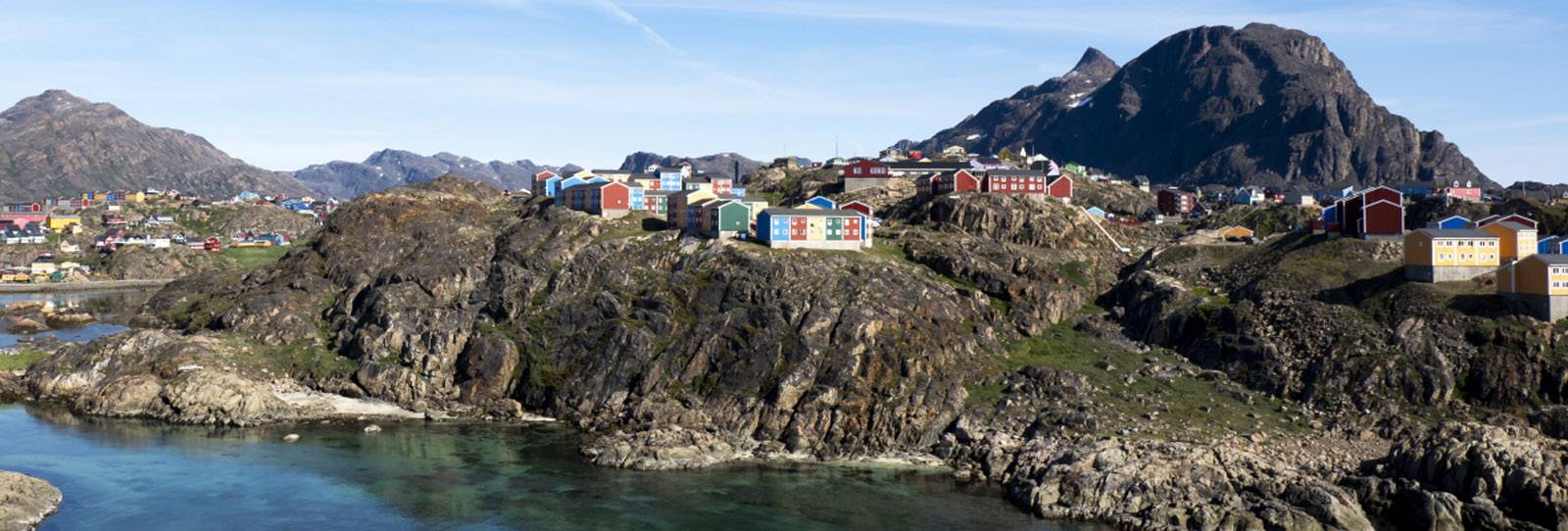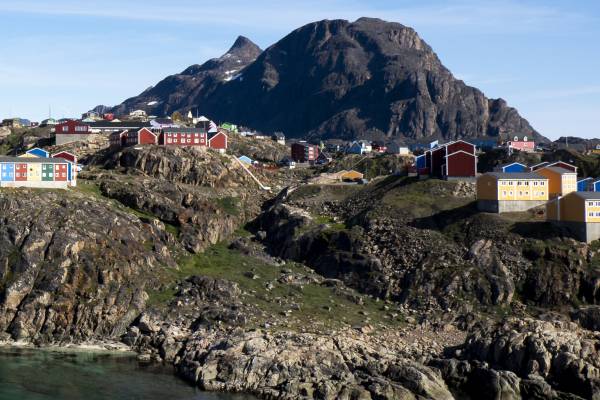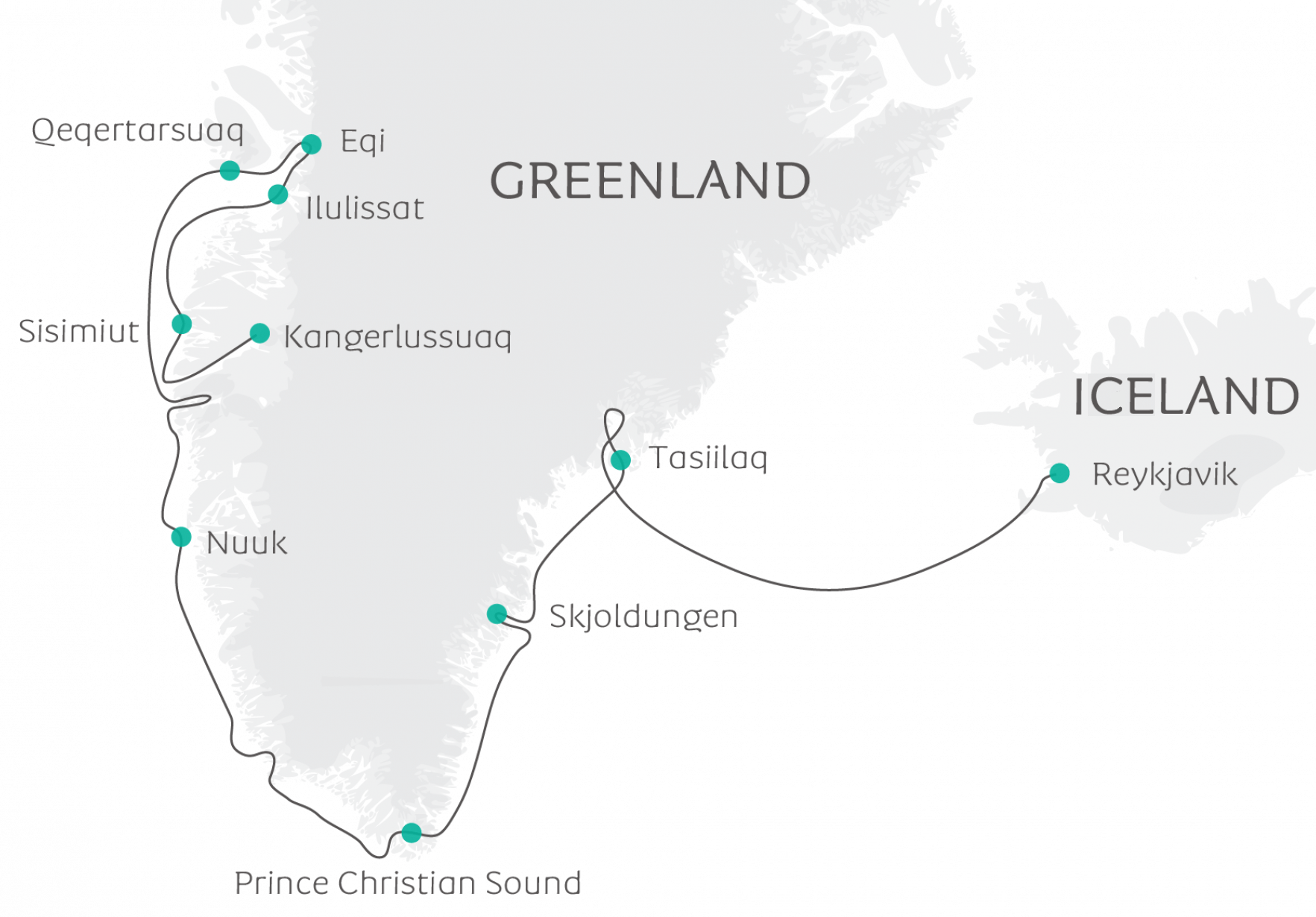HIGHLIGHTS
Join
us on an expedition cruise from Reykjavík to Kangerlussuaq,
which follows the same maritime course set by Norse settlers over a
thousand years ago.
DATES / RATES
Rates are listed per person in USD. Promotional offers are not reflected in the rates below.
|
| Start Date | End Date | Category F | Category G | Category E | Category D | Category C | Category C SP | Category C XL | Category B | Category A | Polar Premium Suite | Polar Family Suite |
|---|
Mandatory
Transfer Package: Value - USD 650/pax
Flights
between Kangerlussaq - Copenhagen via Keflavik and Group Transfer
between Kangerlussaq Airport and the vessel.
Rates are listed per person in USD. Promotional offers are not reflected in the rates below.
|
| Start Date | End Date | (Starting from)
Category F | (Mid-range)
Category C SP | (High-end)
Polar Family Suite |
|---|
Mandatory
Transfer Package: Value - USD 650/pax
Flights
between Kangerlussaq - Copenhagen via Keflavik and Group Transfer
between Kangerlussaq Airport and the vessel.
ITINERARY
DAY
1: ICELAND, REYKJAVÍK EMBARKATION
In
the afternoon, we board the Ocean Albatros in Reykjavík and
set our course westbound for Greenland.
DAY
2: AT SEA
Our
lecturers onboard will make inspiring and enriching presentations about
both Iceland"s and Greenland"s past history and about nature, wildlife
and climatology.
DAY
3: TASIILAQ AND KUUMMIIT
This
morning, we will approach the Island of Ammassalik and enter King
Oskar's harbor with the Polhem Mountain (1003 m/3300 feet) to
starboard. In front of us, we will see East Greenland's largest town,
Ammassalik or Tasiilaq (2,000 inhabitants), which is the name used
today. Although massive ice floes surround Tasiilaq making shipping
traffic impossible most of the year, it has well-functioning
educational institutions and health services.
Ammassalik
was established as a colony in 1894, 10 years after the famed Gustav
Holm's umiaq expedition (open skin boat). The place where the town is
located, originally had no permanent settlement, but it turned out to
be a perfect place to live because of its natural harbor and easy
access to open waters.
We
visit the beautiful local museum with the old turf hut, which
undoubtedly is the place with the very best opportunities to buy some
of Greenland's best crafts.
From
Tasiilaq, we spend the rest of the day exploring the dramatic fjords
and landscapes of the Ammassalik district, with the Kuummiit settlement
(about 400 inhabitants) as our next destination. Kuummiit is a tiny
settlement where most people thrive commercially by fishing or hunting.
Choose to get ashore or stay onboard and enjoy the view of some of the
most scenic and dramatic mountains in Greenland just behind Kuummiit.
DAY
4: SKJOLDUNGEN / SAQQISIKUIK
The
island of Skjoldungen is without doubt one of most beautiful areas in
East Greenland. Situated at 63° N, the island is surrounded by
narrow, steep fjords and glaciers, and with plenty of the cool, crisp
and clean air of the ever present and nearby ice sheet. Still, we will
find and experience a lush landscape and a milder climate than most
would expect. Acclaimed Norwegian explorer Fridjof Nansen came here in
late summer 1888 in search of a suitable ascension point for the first
inland ice crossing.
Skjoldungen
is also the name of an abandoned settlement, located on the southwest
side of the island. Up to 100 people lived here until 1965, and some
houses remain. We continue our journey to Dronning Marie Dal in the
area's northwestern corner to get a closer view of its interesting
flora.
After
Skjoldungen and Ilertakajik fjord, the Alpine peaks and mountainous
landscape diminish and from here, we will find that over large
stretches, the ice sheet reaches all the way to the shoreline, forming
cohesive ice shelfs, a type of icy landscape that some travelers who
have been to Antarctica will probably recognize.
Bernstorff
Icefjord: The most productive glacier on the SE coast, but we keep a
good distance to big icebergs in these ice-infested waters.
DAY
5: PRINCE CHRISTIAN SOUND
Kap
Farvel, or Cape Farewell, is renowned not only as Greenland's
southernmost point, but also for its infamous, although mostly
seasonal, gale-force winds.
We
deliberately opt for a far more comfortable but at the same time more
spectacular route, cruising via the inside passage through the Prince
Christian Sound. This 60 km long waterway, from the Atlantic in the
east, to the settlement Aapilattoq in the heart of the fjordlands of
South West Greenland.
The
sound has steep mountainsides, and many adventurous kayakers have had
to turn around because of a very limited number of landing sites
available. The old weather station of Prince Christian Sound, manned
until a two years ago by sturdy meteorologists, is another classic
point-of-interest along this itinerary.
DAY
6: SOUTH GREENLAND. IVITTUUT, AND ARSUK FJORD
It
is difficult to predict the exact route in South Greenland. We reach
South Greenland and expect the first port of call to be the town of
Qaqortoq. Later in the day we hope to reach Arsuk Fjord with the small
settlement of the same name. But the important call here is the former
cryolite mine at Ivituut, the only place in the world where this very
special mineral was mined until depleted 30 years ago. Used in aluminum
melting, the mineral became strategically important, and forced the
Americans to set up bases in South Greenland to protect the supply
during WW 2.
DAY
7: NUUK
During
the night, we have cruised north to reach Nuuk in the morning. As we
enter the Nuuk Fjord we have fair chances of encountering the area's
seasonal visitors: the humpback whales.
The
world's smallest capital is in Greenland considered by many a mighty
metropolis - a total of 17,000 people live here today, almost a third
of the country"s population.
The
area has been inhabited back to 2200 BC by pre-Inuit hunters. From year
1000 to 1350 AD, the Icelandic Vikings and farmers settled in South
Greenland and in the Nuuk Fjord, while at the same time Inuit hunters
of the Thule culture moved south from North Greenland. The Nordic
settlers disappeared around 1350 AD, but the Inuit stayed, being far
better equipped to hunt and survive in the tough Arctic nature.
Modern
history of Greenland began in 1721, when the Norse missionary Hans
Egede founded a permanent colony and trading station near Nuuk. In
fact, Egede"s main purpose to return to Greenland was to convert the
Catholic northerners to Lutherans, but soon after his arrival he
realized the Norse had disappeared, a mystery yet unresolved.
In
1979, the Landsting (Parliament) was established in Nuuk, and the town
was finally recognized as the country's capital.
Late
in the afternoon, we will leave the capital and continue our northbound
journey.
DAY
8: EVIGHEDSFJORDEN / FJORD OF ETERNITY
Evighedsfjord,
or the Fjord of Eternity, is one of the highlights of our voyage.
We
navigate along the fjord's steep mountainsides and experience
spectacular glaciers, sliding slowly down to the sea.
DAY
9: QEQERTARSUAQ ON DISKO ISLAND, 'KAFFEMIK' IN A COMMUNITY CENTRE AND
EQIP SERMIA GLACIER.
Under
Disko Island"s 1000-metre-high mountains we enter the protected natural
habour that has the Danish name "Godhavn" or Good Harbour and in
Greenlandic "Qeqertarsuaq" which means "The Big Island".
Godhavn
was until 1950 the most important town north of Nuuk, solely because of
the large number of whales caught and landed here. This gave the town
great wealth. Now it"s on the way to oblivion with declining job
opportunities and connections to mainland.
The
local community center hosts a traditional Greenlandic "kaffemik", best
described as a friendly gathering with coffee, cake and traditional
dances and music.
Musicians
from Greenland originally played on a drum (qilaat) made from an oval
wooden frame covered with the bladder of a polar bear. Unlike other
drums, the qilaat would be played by hitting the frame with a stick,
and not the skin itself. This modest instrument was used for a variety
of purposes, including entertainment, exorcism and witchcraft.
During
the afternoon the ship heads east towards the giant glacier Eqip Sermia
in the north-easterly corner of Disko Bay. This glacier is, without
overstating, one of the most impressive in Greenland. Here you can
experience a glacier calve up close, which is not possible in
Ilulissat. Great crevasses, deep blue glacial streams, a landscape so
unique and stunning that words are simply not sufficient. An
outstanding opportunity to see, hear and smell this mighty ice world.
In the evening, we will prepare for departure.
DAY
10: CAPITAL OF THE ICEBERGS, ILULISSAT
Ilulissat
is possibly the most well located town in Greenland. The name simply
means "icebergs" in Greenlandic and the town"s nickname is rightly "The
Iceberg Capital of the World".
The
icebergs come from the Icefjord, which is located a half hour"s hike
south of Ilulissat. These impressive frozen structures are born some
70km deeper into the fjord by the enormous Sermeq Kujalleq glacier.
This 10km-wide glacier is the most productive glacier outside of
Antarctica. Whereas most glaciers only calve at a rate of approximately
a meter a day, the Ilulissat glacier calves at a rate of 25 meters per
day. The icebergs produced by the glacier represent more than 10% of
all icebergs in Greenland, corresponding to 20 million tons!
These
facts, together with the fjord"s extreme beauty, have secured the
Icefjord a place on UNESCO"s World Heritage List.
During
the more than 250 years that have passed since the establishment of
Ilulissat, the town has steadily flourished. Today, Ilulissat is
Greenland"s third largest town with more than 4,500 inhabitants. The
town is very vibrant, welcoming and lively, with a wide range of
cultural attractions, according to Greenlandic standards. The legendary
polar explorer, Knud Rasmussen, and his good friend, Jørgen
Brønlund, were both born in Ilulissat.
On
this day, you will also have the opportunity to join a boat trip to the
Icefjord. The journey takes about two and a half hours in total, and
presents an opportunity to gain a closer look at the amazing
ice-sculpted scenery. The trip is definitely something out of the
ordinary and a great natural experience that you will remember for
years to come - but be sure to remember warm clothes!
If
a hike or a trip by boat does not present enough excitement, there is
also an opportunity to arrange a helicopter ride over the Icefjord.
Please
note the boat and helicopter excursions to the Icefjord are optional
outings and therefore not included in the general tour price.
Furthermore, the helicopter excursion must be booked in advance. Refer
to Price Information for more details.
In
the evening, we will cruise southward from "the Iceberg Capital",
leaving lovely Disko Bay in our wake.
DAY
11: ITILLEQ
In
the morning, we will arise to a picturesque sight — the
settlement of Itilleq, which translates to "the hollow" or "the
flatlands". Quite an appropriate name for a settlement that lies
nestled at the foothills of mountains and glaciers in the distant
backcountry to the east. The town"s slightly more than 100 residents
live off hunting, trapping and fishing, most often in pursuit of arctic
char, reindeer and musk oxen.
Although
Itilleq is quite remote, it lies within a few hours" dinghy sail from
Sisimiut, the second-largest town in Greenland. The accessibility to
such a large town provides an indispensable economic benefit to a small
community like Itilleq"s.
A
stroll through the settlement offers insight into rural life in today"s
Greenland, where modern conveniences and technological advancements,
like internet and smart phones, have become commonplace – yet
locals still place great value on important customs and on preserving
their traditions and Inuit heritage.
Before
lunch, we will return to Ocean Albatros and continue our journey toward
the fjord of Kangerlussuaq. Especially the first part of the fjord
gives you great opportunities to enjoy an impressive passage with
panoramic views of high mountains and deep valleys.
DAY
12: KANGERLUSSUAQ. REINDEER GLACIER (OPTIONAL). AIR TO ICELAND
During
the night, we will have completed our passage through the
160-kilometer/100 mile Kangerlussuaq Fjord. After breakfast aboard the
ship, we will bid farewell to the ship's staff and the Zodiac boats
will shuttle us to shore.
Due
to Kangerlussuaq's military history and present-day role as an
important air travel hub, Kangerlussuaq remains fairly isolated from
Greenland's rich cultural traditions in comparison to other regions.
While you still find cultural experiences when visiting Kangerlussuaq,
the most impressive attraction is the surrounding nature, which is just
beckoning to be explored.
It
is not difficult to see that Kangerlussuaq's landscape has largely been
shaped by the last glaciation period, often known simply as the "Ice
Age" some 18,000 years ago. The mountains are rounded and soft, and
many meltwater lakes remain. From the inland ice sheet, best known as
the Greenland Ice Sheet, the meltwater cuts its way through the porous
moraine landscape and flows into Kangerlussuaq Fjord.
Kangerlussuaq's
present-day climate is largely impacted by its well-sheltered location
between Greenland's Ice Sheet, the fjord and mountains. This
contributes to its stable conditions, minimal cloud presence and
roughly 300 clear nights per year.
In
Kangerlussuaq we offer an optional excursion to the beautiful Reindeer
Glacier. The duration of the excursion is about four hours.
Please
note the excursion is not included in the general tour price. Refer to
Price Information for more details. We do not recommend this excursion
for people who suffer from bad necks or backs, as the gravel road to
the ice sheet is occasionally bumpy and uneven.
As
our time in Greenland concludes, we will fly from Kangerlussuaq to
Reykjavík Airport, Iceland, and your Arctic adventure will
have concluded.
 (Click image to view Ship details)
(Click image to view Ship details)
WHAT'S INCLUDED
- 12-day/11-night
cruise on Ocean Albatros in a shared outside double stateroom with a
private bathroom in the category chosen
- Flights
between Kangerlussaq - Copenhagen via Keflavik and Group Transfer
between Kangerlussaq Airport and the vessel. Value: USD 650/pax
- English-speaking
expedition staff
- Near-port
walks with the expedition team
- Nature
hikes and Zodiac cruises per itinerary
- Information
briefings and lectures by the expedition team
- Special
photo workshop
- Full
board on the ship
- Dinner
drink package
- Free
coffee, tea, and afternoon snacks on the ship
- Welcome
and Farewell cocktails
- Taxes,
tariffs, and landing fees
- Digital
visual journal link after the voyage, including voyage log, gallery,
species list, and more
Exclusions
- International
flights
- Extra
excursions and activities not mentioned in the itinerary
- Single
room supplement and cabin upgrades
- Meals
not on board the ship
- Beverages
(other than coffee and tea and dinner-drink package)
- Tips
for the crew (we recommend USD 16 per person per day)
- Personal
expenses
- Transfer
to the ship in Reykjavik
- Travel,
cancellation, and senior insurance
- Anything
not mentioned under ’Inclusions’
ADVENTURE
OPTIONS
- Zodiac
Cruises
- Kayaking
- USD 250
- Lectures




